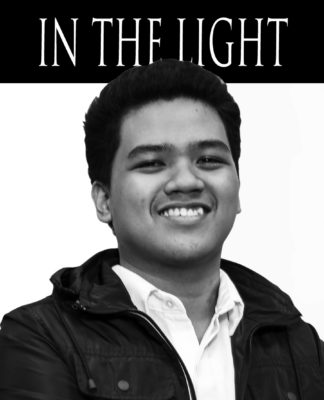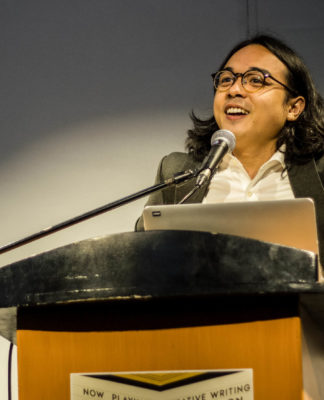THE FLAME of student activism did not burn out even in a conservative environment of UST during the dark days of the Marcos dictatorship.
Students like Reynaldo Lopez, Eduardo Buenaflor, and Ronald Llamas made sure that Thomasians did not stay in the sidelines, but were heavily involved in the struggle for freedom.
“The University was neither critical nor outspoken. Even school officials were not militant,” recalled Lopez, who would later become a professor at the Faculty of Arts and Letters where he and his two fellow students graduate from.
Lopez said the passiveness of the University influenced its students and made them silent amid the political and social issues that confronted the country.
“Majority of the students were afraid to join rallies,” Lopez said. “Others simply did not care while some were sympathetic and joined underground groups.”
Only cultural and religious student associations were allowed at UST at that time. Pax Romana, the oldest religious organization on campus, served as the prime student club where Buenaflor, Llamas, and Lopez eventually became officers.
“Everybody [the students] was supposed to get accustomed to Martial Law. No protest, no rally. Organizations like the Pax Romana was the [student’s] only saving grace,” said Buenaflor, an economics alumnus.
Defying Marcos
A protest rally against the rampant cheating in the Batasang Pambansa election of 1978 gave Buenaflor his most memorable experience as a student activist during his freshman year.
He joined a rally secretly organized by his cousins who were then studying in Ateneo. He was then caught by military officials and was jailed in Bicutan.
“It was a good thing that we were detained in groups. If not for the international press, we might have just disappeared or worse, killed,” he said.
The traumatic experience convinced his fellow detainees it was time to give up. But not Buenaflor, who said it only emboldened his resolve to fight the dictatorship.
“After the protest, I got hooked to those movements. I even looked for underground groups to join,” he said.
Meanwhile, it was through the The Flame, Artlets’ student publication, that Llamas expressed his defiance against Marcos.
“At that time, campus journalism was beginning to flourish and we were taught not to criticize and to show [only] the bright side of life in our writings,” he said.
Llamas started writing critical articles about the dictatorship, mainly through his column titled “Raising Helll,” during his sophomore year.
“If you cannot raise hell at that time, your writing has no meaning. It [writing] must create tension, dynamics, and conflict,” he said.
First student council
As scholastic groups and clubs prevailed in the University’s roster of organizations during Martial Law, the formation of student councils (SC) was prohibited by the government. Despite this, active student leaders opted to revive student councils.
“We were not satisfied with just being members of Pax Romana. We formed and risked (our safety) by forming the SC,” said Lopez, whose group sought permission from the college dean and the rector.
Soon they were advised against the likely consequences.
“As liberal arts students, we thought that this was not correct. This was our organization so why would they make the constitution for us?” Lopez said.
Llamas then ran for president with Lopez as his vice-presidential candidate. It was during their term that the council’s constitution was drafted and supported by a popular election by the student body.
“We held a plebiscite in all classes. We went room-to-room to ask if our fellow Thomasians (to) approve the constitution,” Lopez said.
The Artlets’ SC then became the first legitimate student government in the Philippines since Martial Law was declared.
“We were four months ahead of UP and that is a pride not only of the Artlets community but of the University as well,” Lopez said.
Graduation did not not keep the trio from doing what day loved in the real world.
Lopez and Buenaflor, who took up law at the University and Ateneo, respectively, would become law school student council presidents. Llamas went on to work as a community organizer.
“The period of Martial Law made the students indifferent and afraid, but at the same time, it led us to discover the contradictions between our own principles and the lessons that we learned from the University,” he said.

















